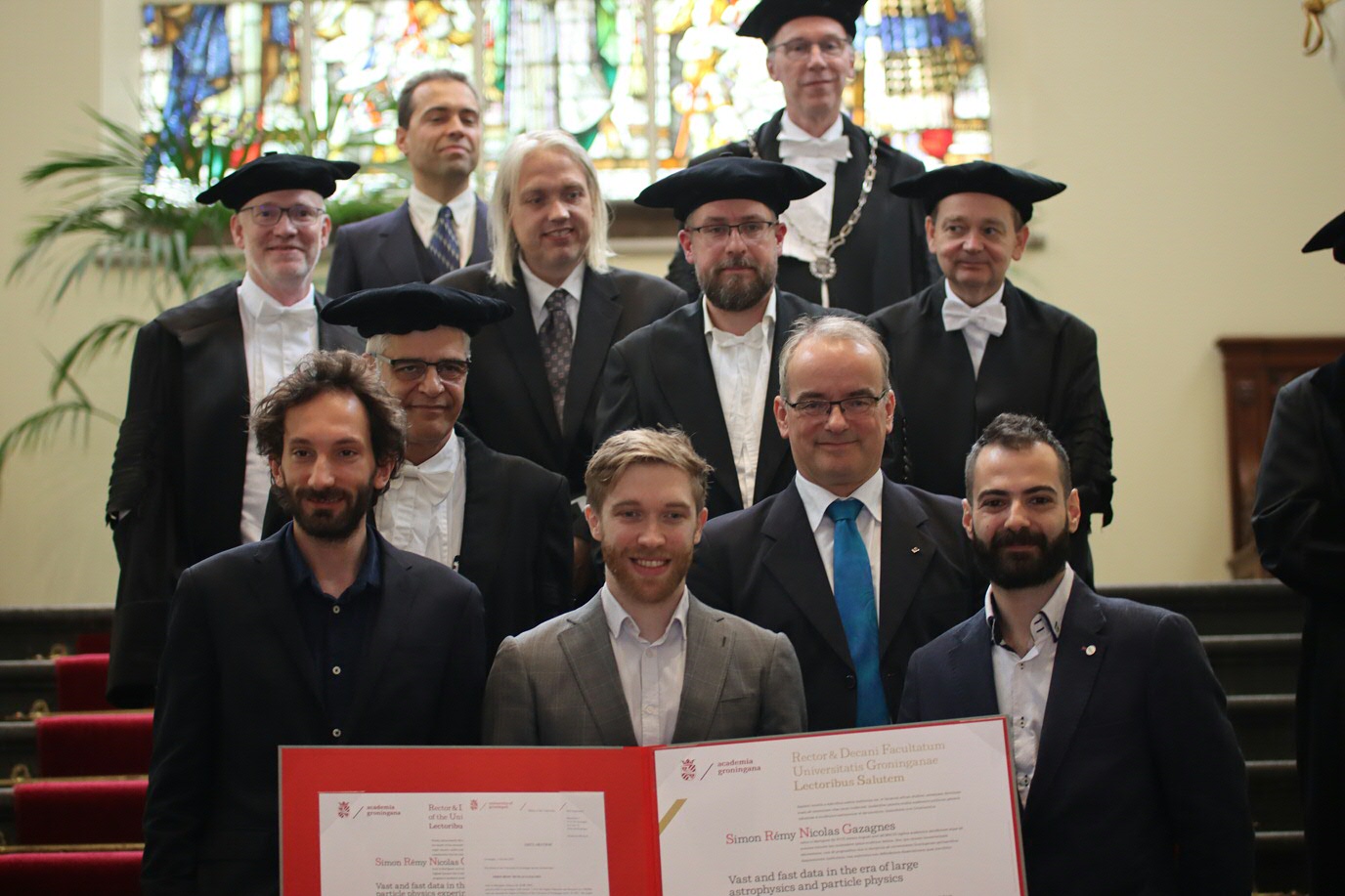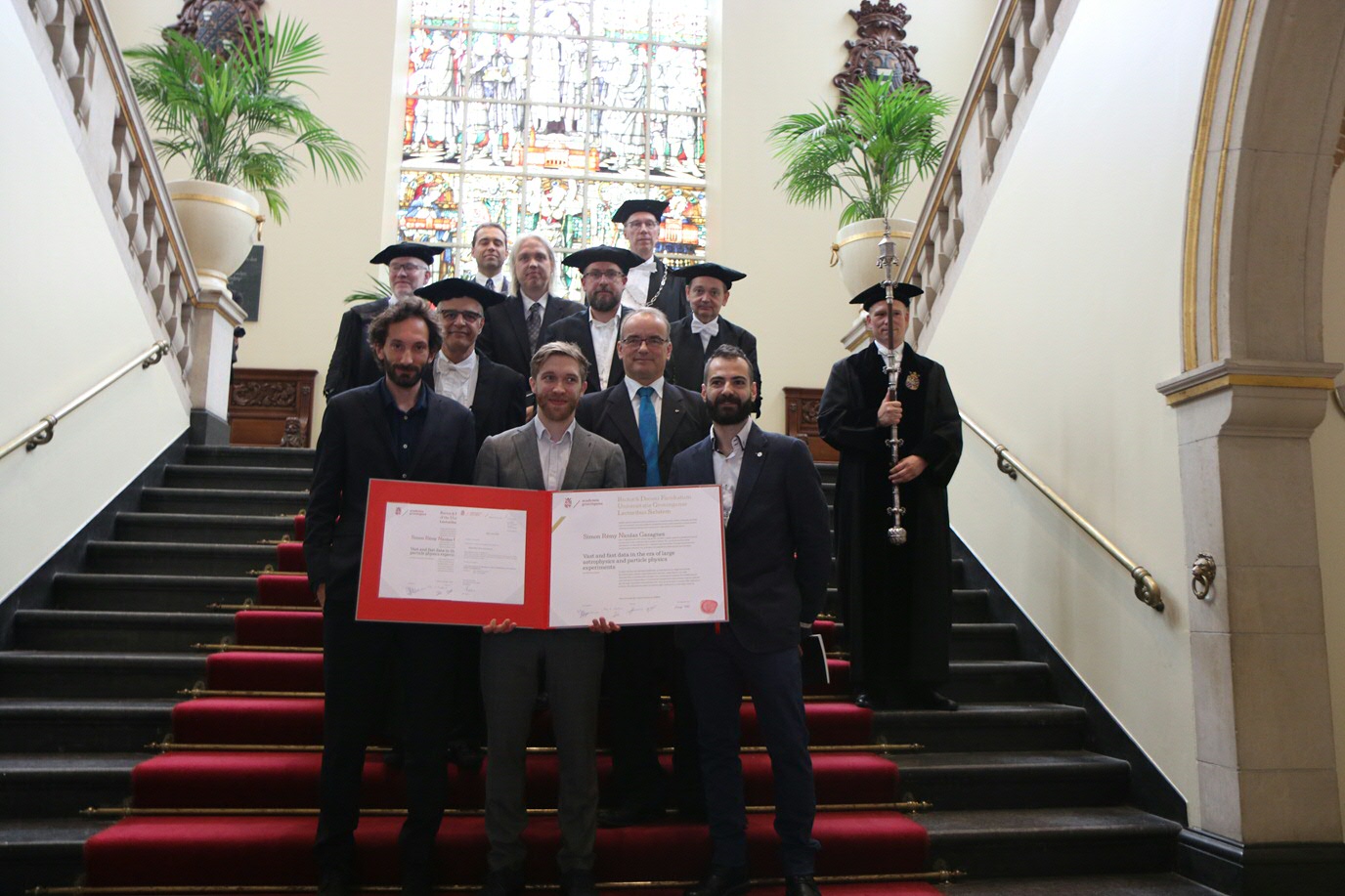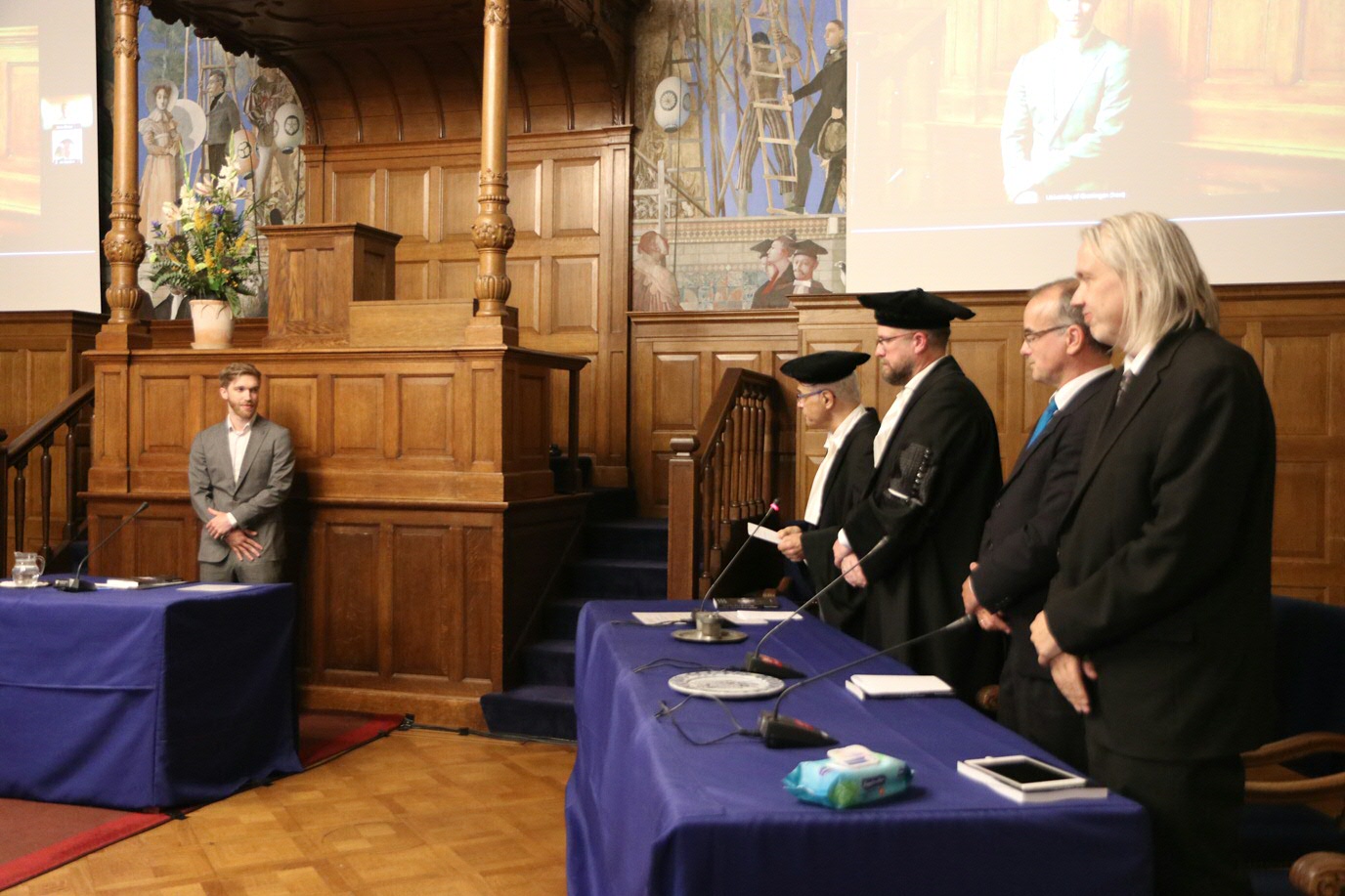Cum laude for PhD student Simon Gazagnes | Nuclear Energy



On Friday October 1, Simone Gazagnes successfully defended his PhD thesis entitled "Vast and fast data in the era of large astrophysics and particle physics experiments". He received his doctorate degree 'cum laude'.
Simon conducted his research at the Nuclear Energy research group within the ESRIG institute. A big congratulations on behalf of all ESRIG colleagues. We also wish him lots of success and happiness in his new job as a postdoctoral fellow at the department of Astronomy of the University of Texas at Austin in the US.
About his research
Since the beginning of the third millennium, we have entered the Information Age, an era dominated by vast volumes of data and information generated by our modern societies. This era hascritical implications for research, the progress of which now relies on large cutting-edge research experiments. The data collected by these experiments will be complex to handle, such that novelcomputational methods are needed to extract and analyze their information content. My research focuses on developing such methods in the context of upcoming large astrophysics and particle physics experiments. In this interdisciplinary thesis, I first present the implementation of a new computational tool building upon recent mathematical morphology techniques, the componenttrees, to efficiently analyze the connected structures observed in vast images and volumes. Then, I explore the astrophysics of the Epoch of Reionization, a key cosmic epoch in the history of the Universe, using UV spectroscopic and 21-cm observations. In particular, my work examines howfuture telescopes such as the James Webb Space Telescope and the Square Kilometer Array will helpus to constrain the properties of the sources of reionization. Finally, I present a fast and efficient track reconstruction algorithm for the upcoming antiProton ANnihilation at DArmstadt (PANDA)particle physics experiment. PANDA will study collisions of protons (or nuclei) and antiprotons at very high luminosities and interaction rates to explore the physics of strong interactions with unprecedented accuracy.
Supervisors:Co-supervisors:
More news
-
15 September 2025
Successful visit to the UG by Rector of Institut Teknologi Bandung
